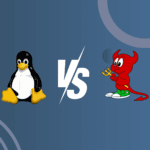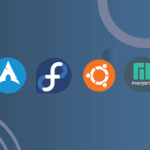Top Linux Applications – Know the Linux Ecosystem
The Linux ecosystem boasts a wide range of applications that can meet almost any need, from productivity and development to media editing and gaming. Whether you’re a new Linux user or an experienced enthusiast, Linux applications are easy to install and customize, ensuring you have the right tools for every task. This article explores the top Linux applications across various categories, with step-by-step guidance on installing them through different package managers.
Ways to Install Applications on Linux
Linux provides flexibility when it comes to installing applications, catering to both beginners who prefer graphical interfaces and advanced users who enjoy command-line controls. Here’s a look at the primary installation methods:
- Application Stores
Many Linux distributions come with a dedicated app store, like Ubuntu Software Center, GNOME Software, and Discover (KDE). These stores allow users to search for, review, and install applications with a few clicks. Ubuntu Software Center, for example, includes a wide range of verified applications and simplifies the installation process for beginners. - Package Managers
For those who prefer more control over installation, Linux distributions offer package managers. Each distribution has a unique package manager that fetches software from specific repositories:
A) apt (Debian/Ubuntu): This package manager is used in Debian-based distributions like Ubuntu and Linux Mint. For example, to install GIMP, type:
sudo apt update
sudo apt install gimp
B) dnf (Fedora): Fedora users rely on dnf to install and manage packages. Installing GIMP with dnf looks like this:
sudo dnf install gimp
C) pacman (Arch Linux): Known for its speed, pacman is used by Arch Linux and its derivatives. For example:
sudo pacman -S gimp
D) zypper (openSUSE): openSUSE users have access to zypper, which supports various command options for efficient package management:
sudo zypper install gimp
Each package manager connects to a central repository of pre-built software packages, but users can also add repositories for broader access, such as Arch’s AUR (Arch User Repository). The AUR contains community-managed packages, but users should exercise caution, as these packages may not be officially verified by distribution maintainers.
Compiling from Source
Advanced Linux users may prefer compiling applications from source code to access the latest updates or features that might not be available in their distribution’s package repository. While this offers customization flexibility, it requires knowledge of build tools and dependencies. This method is typically recommended only for experienced users.
Top Linux Applications [Sorted by categories]
Below are some of the top Linux applications that cater to common use cases. We’ve provided installation commands for each category to make setup as simple as possible. But remember, most of these aplications are available via your Linux Distribution Software Store.
1. Email Clients
Managing emails on Linux is streamlined with these feature-rich email clients:
- Thunderbird: Thunderbird is a versatile, open-source email client with support for IMAP, POP3, and multiple accounts. It’s known for its secure, privacy-focused features and can be extended with various plugins.
sudo apt install thunderbird # Ubuntu
sudo dnf install thunderbird # Fedora
sudo pacman -S thunderbird # Arch
sudo zypper install MozillaThunderbird # openSUSE
- Geary: Geary offers a sleek and straightforward interface, ideal for users seeking a lightweight experience.
sudo apt install geary # Ubuntu/Debian
sudo dnf install geary # Fedora
sudo pacman -S geary # Arch
sudo zypper install geary # openSUSE
- Evolution: Evolution includes email, calendar, and contact management in one application, making it a great choice for productivity-focused users.
sudo apt install evolution # Ubuntu/Debian
sudo dnf install evolution # Fedora
sudo pacman -S evolution # Arch
sudo zypper install evolution # openSUSE
2. Image Editors
Linux provides several powerful alternatives to Adobe’s Photoshop and Illustrator:
- GIMP: Often referred to as the “Photoshop of Linux,” GIMP offers extensive photo editing and manipulation capabilities.
sudo apt install gimp # Ubuntu/Debian
sudo dnf install gimp # Fedora
sudo pacman -S gimp # Arch
sudo zypper install gimp # openSUSE
- Krita: Ideal for digital painting and illustration, Krita has a robust set of tools for artists.
sudo apt install krita # Ubuntu/Debian
sudo dnf install krita # Fedora
sudo pacman -S krita # Arch
sudo zypper install krita # openSUSE
- Inkscape: Inkscape is a vector graphics editor that excels in creating illustrations, logos, and icons.
sudo apt install inkscape # Ubuntu/Debian
sudo dnf install inkscape # Fedora
sudo pacman -S inkscape # Arch
sudo zypper install inkscape # openSUSE
3. Audio Editors
For audio recording and editing, Linux has several feature-packed applications:
- Audacity: A free, open-source audio editor ideal for podcasting, sound editing, and basic audio manipulation.
sudo apt install audacity # Ubuntu/Debian
sudo dnf install audacity # Fedora
sudo pacman -S audacity # Arch
sudo zypper install audacity # openSUSE
- Reaper: A professional-grade DAW (Digital Audio Workstation) that’s not free but offers powerful tools for advanced users.
Install manually from https://www.reaper.fm/download.php (Paid Software)
- Ardour: Designed for musicians and producers, Ardour offers multi-track editing and extensive sound manipulation capabilities.
sudo apt install ardour # Ubuntu/Debian
sudo dnf install ardour # Fedora
sudo pacman -S ardour # Arch
sudo zypper install ardour # openSUSE
4. Communicators
Linux offers a range of secure, open-source messengers:
- Signal: Known for its high-level encryption, Signal is perfect for secure communication.
# Ubuntu/Debian
curl -s https://updates.signal.org/desktop/apt/keys.asc | sudo apt-key add -
echo "deb [arch=amd64] https://updates.signal.org/desktop/apt xenial main" | sudo tee -a /etc/apt/sources.list.d/signal-xenial.list
sudo apt update && sudo apt install signal-desktop
# Fedora (or use Flatpak if unavailable)
sudo dnf install signal-desktop
# Arch (AUR)
pamac -S signal-desktop
# openSUSE (via Flatpak)
flatpak install flathub org.signal.Signal
- Telegram: A cloud-based messaging app with open-source clients, great for both personal and group chats.
sudo apt install telegram-desktop # Ubuntu/Debian
sudo dnf install telegram-desktop # Fedora
sudo pacman -S telegram-desktop # Arch
sudo zypper install telegram-desktop # openSUSE
5. Screen Recording and Screenshot Tools
Linux users have excellent tools for capturing screens, ideal for content creators and developers alike:
- Flameshot: A customizable screenshot tool with built-in editing features.
sudo apt install flameshot # Ubuntu/Debian
sudo dnf install flameshot # Fedora
sudo pacman -S flameshot # Arch
sudo zypper install flameshot # openSUSE
- OBS Studio: Perfect for screen recording and live streaming, OBS Studio supports multiple audio and video sources.
sudo apt install obs-studio # Ubuntu/Debian
sudo dnf install obs-studio # Fedora
sudo pacman -S obs-studio # Arch
sudo zypper install obs-studio # openSUSE
6. Gaming
While Linux has historically had limited gaming support, several applications now make gaming on Linux a great experience:
- Steam: The largest online gaming platform, Steam provides access to a massive library of games.
# Ubuntu/Debian
sudo dpkg --add-architecture i386
sudo apt update
sudo apt install steam
# Fedora
sudo dnf install steam
# Arch
sudo pacman -S steam
# openSUSE
sudo zypper install steam
- Discord: A voice, video, and text chat platform widely used by gamers and community organizers.
# Ubuntu/Debian
sudo apt install discord # or use Snap/Flatpak if unavailable
# Fedora
sudo dnf install discord # or use Flatpak
# Arch (AUR)
pamac build discord
# openSUSE (via Flatpak)
flatpak install flathub com.discordapp.Discord
- Lutris: A game manager for Linux that allows users to install and manage games from different platforms, including Windows games.
sudo apt install lutris # Ubuntu/Debian
sudo dnf install lutris # Fedora
sudo pacman -S lutris # Arch
sudo zypper install lutris # openSUSE
7. Development Tools
Linux is the top choice for many developers due to its versatility and stability, and it supports a wide range of IDEs and text editors:
- VS Code: Visual Studio Code is a powerful code editor with extensive plugin support for various programming languages and frameworks.
# Ubuntu/Debian
wget -qO- https://packages.microsoft.com/keys/microsoft.asc | gpg --dearmor > microsoft.gpg
sudo install -o root -g root -m 644 microsoft.gpg /etc/apt/trusted.gpg.d/
sudo sh -c 'echo "deb [arch=amd64] https://packages.microsoft.com/repos/vscode stable main" > /etc/apt/sources.list.d/vscode.list'
sudo apt update
sudo apt install code
# Fedora
sudo rpm --import https://packages.microsoft.com/keys/microsoft.asc
sudo sh -c 'echo -e "[code]\nname=Visual Studio Code\nbaseurl=https://packages.microsoft.com/yumrepos/vscode\nenabled=1\ngpgcheck=1\ngpgkey=https://packages.microsoft.com/keys/microsoft.asc" > /etc/yum.repos.d/vscode.repo'
sudo dnf install code
# Arch (AUR)
pamac build visual-studio-code-bin
# openSUSE
sudo zypper install code
- Sublime Text: Known for its speed and smooth interface, Sublime Text is a great editor for coding.
# Ubuntu/Debian
wget -qO - https://download.sublimetext.com/sublimehq-pub.gpg | sudo apt-key add -
echo "deb https://download.sublimetext.com/ apt/stable/" | sudo tee /etc/apt/sources.list.d/sublime-text.list
sudo apt update
sudo apt install sublime-text
# Fedora
sudo rpm -v --import https://download.sublimetext.com/sublimehq-rpm-pub.gpg
sudo dnf config-manager --add-repo https://download.sublimetext.com/rpm/stable/x86_64/sublime-text.repo
sudo dnf install sublime-text
# Arch (AUR)
pamac build sublime-text-4
# openSUSE
sudo zypper addrepo https://download.sublimetext.com/rpm/stable/x86_64/sublime-text.repo
sudo zypper install sublime-text
8. Office Suites
Linux offers full-featured office suites that work as alternatives to Microsoft Office:
- LibreOffice: A powerful, open-source office suite with applications for word processing, spreadsheets, presentations, and more.
sudo apt install libreoffice # Ubuntu/Debian
sudo dnf install libreoffice # Fedora
sudo pacman -S libreoffice-still # Arch
sudo zypper install libreoffice # openSUSE
- OpenOffice: Another office suite that offers compatibility with most file formats.
Install manually from https://www.openoffice.org/download/
- WPS Office: Known for its interface similarity to Microsoft Office, WPS Office is popular for users transitioning from Windows. (Install from Snap or Flatpak)
# Snap
sudo snap install wps-office
# Flatpak
flatpak install flathub com.wps.Office
Conclusion
From development tools to creative suites, Linux offers a wealth of applications tailored to all kinds of users. By following these installation guides, you can quickly set up your Linux environment with tools suited to your needs. Linux is an ever-growing ecosystem, and as more software becomes compatible with it, the possibilities for customization and functionality continue to expand. What’s your top linux application?
If you are looking for more Linux applications please check my latest post about Open Source apps



